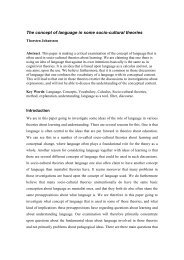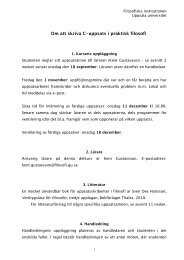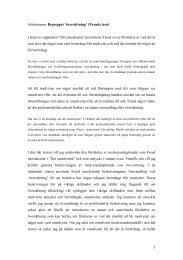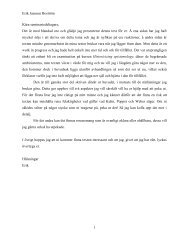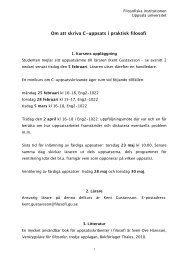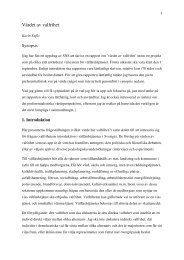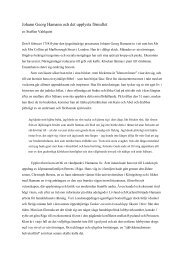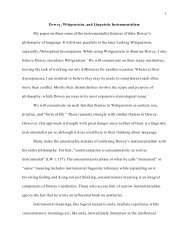Formal Logic, Models, Reality
Formal Logic, Models, Reality
Formal Logic, Models, Reality
You also want an ePaper? Increase the reach of your titles
YUMPU automatically turns print PDFs into web optimized ePapers that Google loves.
2.1 Introduction. A considerable number of philosophers and logicians have wrestledwith problems of existence and reference in formal logic. The discussions haveoften been centred around the existence of God and the reference to God by namesand definite descriptions. They might as well have been centred around the existenceof and reference to for instance centaurs or infinite sets. As examples of philosopherlogicianswho treat such problems of reference and existence I take Russell (1910)and Quine (1951).2.2 Constants. Constants are the formal analogues of proper names. First supposewe want to express statements about Gods existence and non-existence, and we consider'God' a proper name as it normally is construed. We introduce a constant 'g' intoour formal language meant to refer to God. Then apparently we can express 'God exists'by(2-1) x x = gand 'God does not exist' by(2-2) x x = gBut (2-1) is a logical consequence ofg = gwhich is a logical truth. Then also (2-1) is a logical truth, and the theistic standpointcannot possibly be a logical truth. Similarly, the sentence (2-2) has as an immediatelogical consequence(2-3) y x x = ywhich can be read as(2-4) There exists something which does not exist;or as(2-5) There exists something which is different from everything (includingfrom itself).As Quine rightly points out, this is "a contradiction in terms." Then the atheisticstatement "God does not exist" is also a contradiction; but it must surely be possibleto express the atheistic standpoint without contradiction.2.3 Russell. I first briefly consider Russell's attempt to solve this problem. His firststep is to consider 'God' a non-formal predicate instead of a proper name. In the formallanguage, he introduces a formal predicate 'G' with the intended interpretation(3-1) G(x) x is God, orG(x) x is godlike.8



